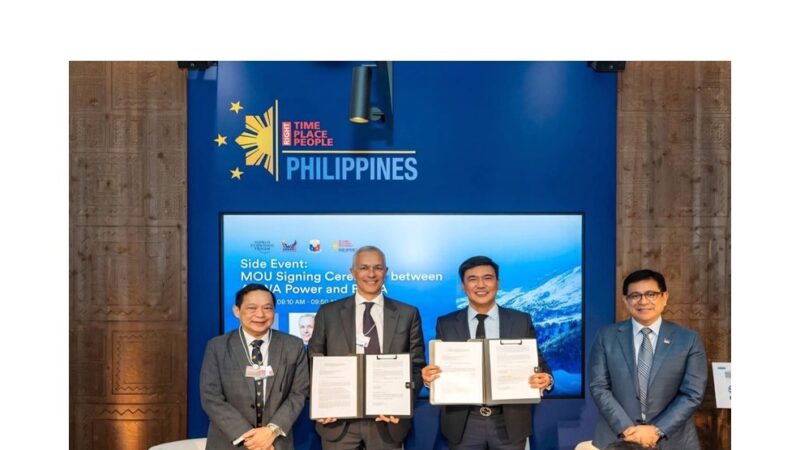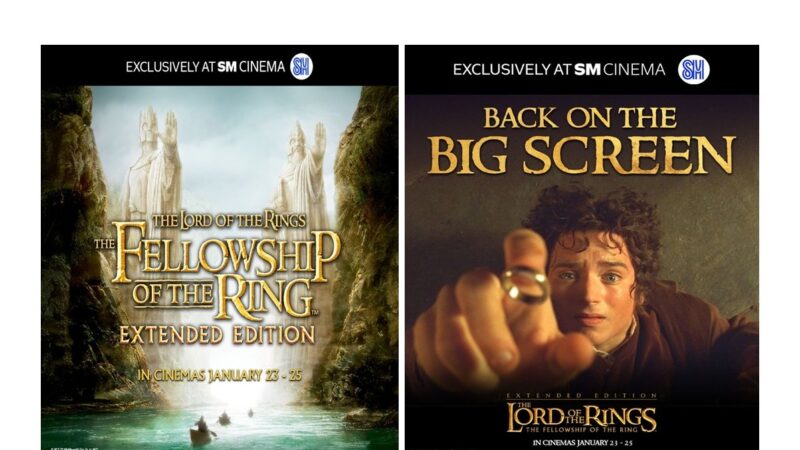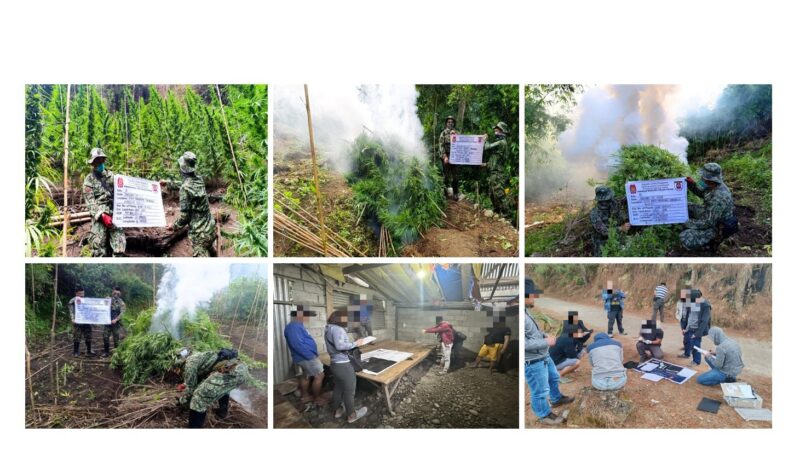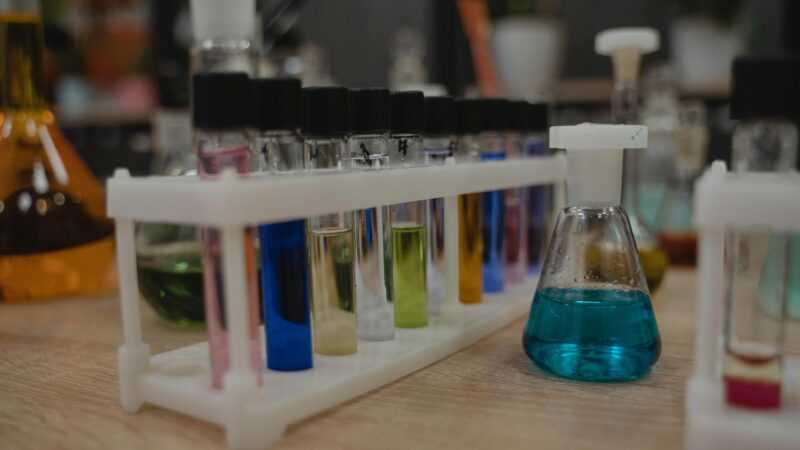Shocking Mercury Levels Found in Popular Skin Creams Sold in Bangladesh: New Study Reveals
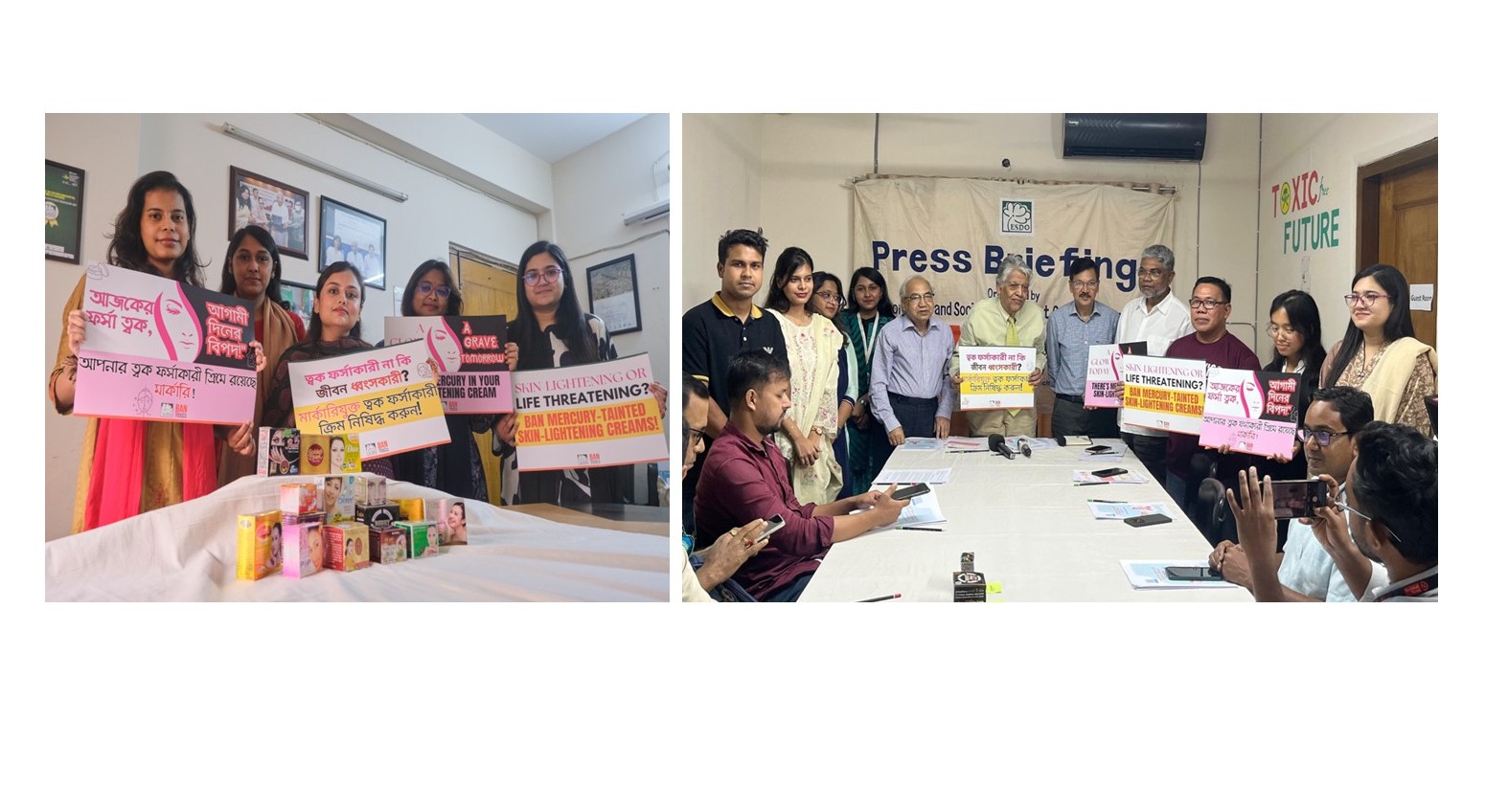
Dhaka, Bangladesh – A recent groundbreaking study by the Environment and Social Development Organization (ESDO), in partnership with the European Environmental Bureau (EEB) and testing support from BAN Toxics, has uncovered a public health crisis hiding in plain sight. Alarming findings revealed that in 2024 & 2025, 22 out of 26 skin-lightening creams tested in Bangladesh contain mercury levels far above the internationally accepted limit of 1 part per million (ppm)—posing serious health risks to consumers. The results, unveiled at a press briefing, raise urgent concerns about toxic beauty standards and lax regulation in the cosmetics market.
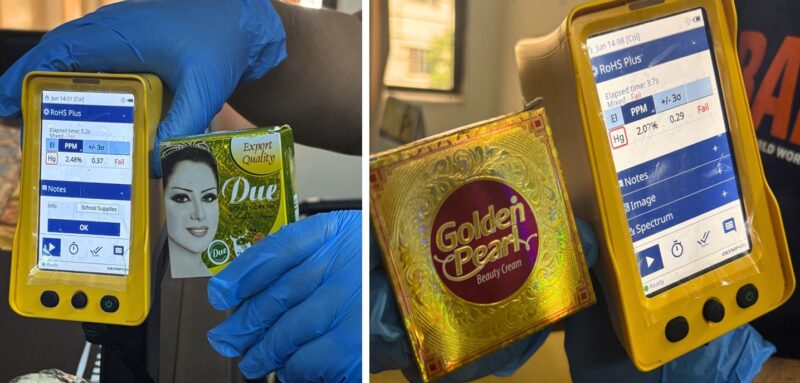
Civil society groups, ESDO and Philippine-based BAN Toxics, have raised concerns today over the continued sale of mercury-containing skin-lightening products in Bangladesh, highlighting the need for enhanced regulatory enforcement, heightened public awareness, and international cooperation.
The call for action follows a recent study conducted by the groups, which monitored mercury levels in skin-lightening creams obtained from both physical and online markets. The initiative builds on ESDO’s regular monitoring efforts since 2017. BAN Toxics, for its part, has been consistently campaigning against mercury-containing skin-lightening products in the Philippines.
Using an X-ray Fluorescence (XRF) analyzer, researchers confirmed shockingly high mercury content in the tested products. The two brands with the highest concentrations were Due Beauty Cream (24,800 ppm) and Golden Pearl Beauty Cream (20,700 ppm).
According to the study findings, out of the 22 products that tested positive for mercury, three have been banned by the Bangladesh Standard Testing Institution (BSTI). These include the above-mentioned two well-known brands and Goree Beauty Cream with Lycopene. Despite the ban, these products remain easily accessible in local markets and on online platforms. Additionally, several skin lightening creams were found to contain dangerously high levels of mercury, including FEIQUE Herbal Extract Whitening Freckle Removing Cream (15,500 ppm), Parley Beauty Cream (10,000 ppm), and Kim Whitening Ginseng and Pearl Cream (7,400 ppm).
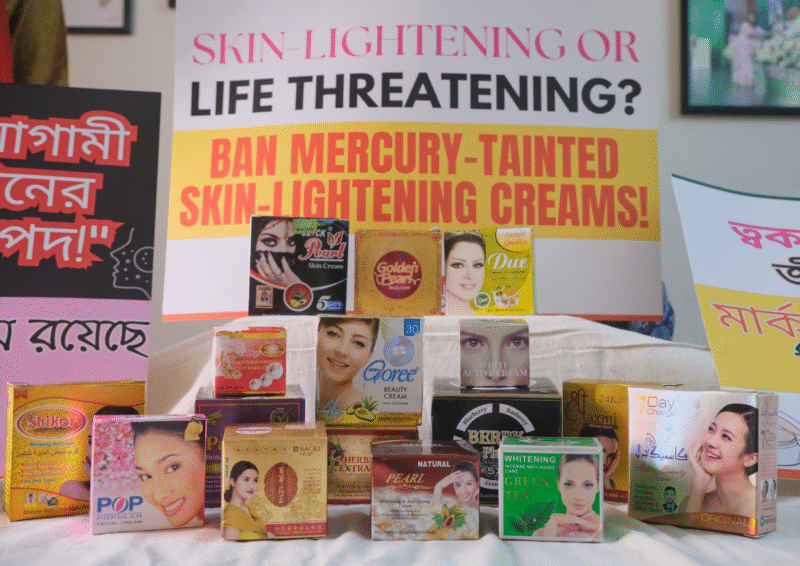
In 2024, testing revealed alarming mercury contamination in several skin-lightening products. Jiaoli Whitening Night Cream contained the highest concentration at 5,140 ppm, followed by Collagen Plus Vitamin E Night Cream (4,120 ppm) and Jiaoli Day Cream (4,110 ppm). Other products with significant mercury levels included Natural Pearl Whitening and Anti-Aging Cream (2,780 ppm) and Feique Papaya Whitening Anti-Freckle Package (1,840 ppm). Jiaoli Night Cream also exceeded safety limits at 1,060 ppm, while Thanaka and Collagen Plus Vitamin E Day Cream showed no detectable mercury (ND). These findings underscore the persistent presence of hazardous mercury in cosmetics despite regulatory bans.
“Despite some progress in both local and international regulations, it is alarming that these products remain available in the market, putting public health at risk and contributing to environmental pollution,” said Prof. Dr. Md. Abul Hashem, Former Chairman of Dept. of Chemistry, Jahangirnagar University, and Senior Technical Adviser of ESDO.
BSTI Deputy Director Abu Sayed said, “We are running mobile courts, monitoring markets and online platforms, even going undercover to detect banned skin-lightening creams. But BSTI alone cannot tackle this issue. Public awareness and joint efforts from citizens, organizations, media, and all sectors are essential.”
“There is a need for concerted effort from the government, civil society, and environmental groups to raise public awareness on the dangers of mercury. Mercury in creams is a silent killer that will slowly harm individuals over time, often without immediate symptoms,” Dr. Shahriar Hossain, Senior Technical Adviser of ESDO added.
According to the World Health Organization (WHO), mercury is toxic to human health and can cause irreparable damage to the nervous system. The international coalition Zero Mercury Working Group (ZMWG) also warns that prolonged use of mercury-containing skin-lightening products may harm the eyes, lungs, kidneys, digestive, and immune systems. Mercury in beauty products not only endangers users but also poses risks to others, as it can vaporize and spread through direct or indirect contact. Infants, children, and developing fetuses are particularly vulnerable to its harmful developmental effects.
BAN Toxics Advocacy and Campaign Officer Thony Dizon, meanwhile, says that the persistent availability of mercury-containing beauty products is a global concern, and that their illegal transboundary trade requires urgent intergovernmental cooperation and action. He noted that the declared countries of origin of the 18 mercury-positive samples include Pakistan, China, Korea, Thailand, Bangladesh, Taiwan, and Vietnam.
“These findings highlight the urgent need for stronger border controls, regional cooperation, and consistent enforcement of international agreements like the Minamata Convention on Mercury,” Dizon said. “Countries must work together to stop the production, trade, and sale of these toxic products that continue to harm vulnerable communities.”
Dizon added that the Philippines faces the same problem as Bangladesh. Although the Philippine Food and Drug Administration has banned more than 100 mercury-containing skin-lightening products, enforcement against their widespread sale remains a challenge, especially on popular online marketplace platforms.
Since 2017, both ESDO and BAN Toxics have been part of the ongoing global campaign against mercury-containing skin-lightening products, led by the European Environmental Bureau and the Zero Mercury Working Group (ZMWG). The two environmental groups are currently in a formal partnership to conduct studies and raise awareness about the presence of toxic chemicals in everyday consumer goods, including children’s products.
“We envision a toxics-free Asia where consumers are protected and informed,” said Siddika Sultana, Executive Director of ESDO. “Achieving this goal will require sustained collaboration, stronger regulations, and a shared commitment to safeguard public health and the environment.”

